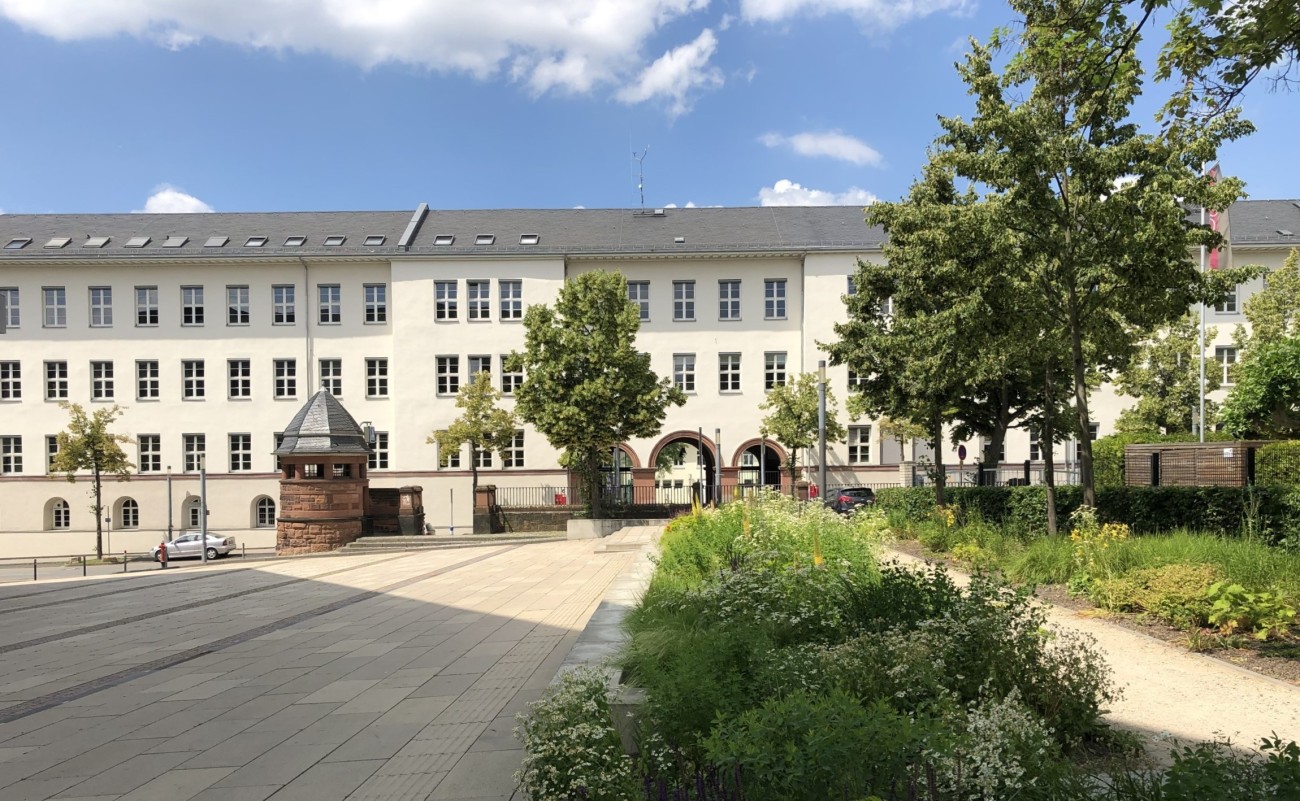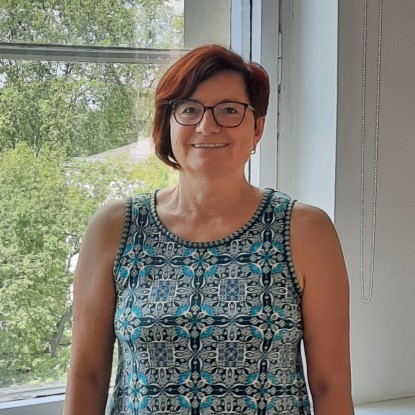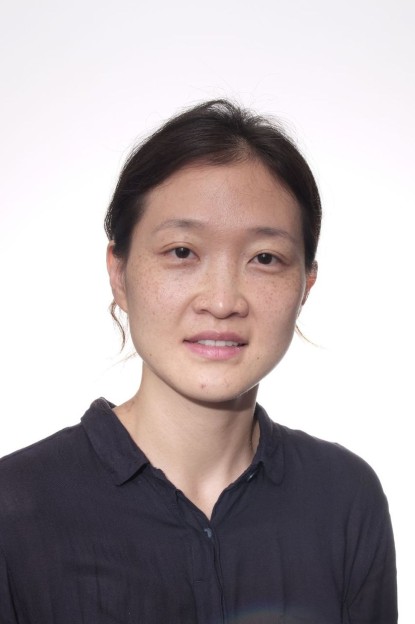General Information
The condition for admission to a Master's programme and thus a prerequisite for enrolment is a Bachelor of Arts degree in the same degree programme or an equivalent degree. For the admission of students from other B.A. degree programmes or from other universities, conditions may be stipulated. If you have any questions, please contact the Student Advisory Service.
Please also note the general information on the Master's degree programme and the information for prospective students with foreign certificates: Department VIII A – International Admission
Students from other universities
Heterogeneous experiences, backgrounds and ways of thinking are always welcome in research and educational institutions, as they are the first to initiate change and transformation. We therefore look forward to welcoming students from other universities!
Why study a Master’s degree in Educational Science at TU Darmstadt?
Studying at a technical university offers special opportunities for interdisciplinarity and research perspectives in very forward-looking areas. Above all, students benefit from a good relationship with lecturers – in both quantitative and qualitative terms: precisely because the institute is rather small, lecture halls are rarely overcrowded and seminar places are rarely disputed, which prevents unnecessary delays in the degree programme. Many students also report that they can use the personal relationship with their lecturers productively to work on the contents of their studies and to discover and pursue their own research interests.
In addition, the institute offers the opportunity to work as a student assistant in research projects and areas of work and to gain professional experience in the field of science. The mandatory courses offer specific opportunities to combine and deepen topics with other disciplines (keyword: interdisciplinarity).
Students also appreciate the opportunities offered by the city (cultural offerings, cafés, pubs, parks, good public transport connections, etc.) and the excellent location in the Rhine-Main region. Thanks to a strategic alliance between TU Darmstadt and the two neighbouring universities in Frankfurt (Goethe University) and Mainz (Gutenberg University), students also have the opportunity to attend courses at these universities and contribute to their studies.
Study specialisations and structure
The Master of Arts in Educational Sciences programme builds on the Bachelor of Arts in Pedagogy at TU Darmstadt or equivalent Bachelor of Arts degrees. The programme is designed to be research-oriented. Accordingly, methodological and methodical knowledge in particular is taught during the programme and applied in the respective research fields of the institute in line with the students' own research questions. This allows students to set their own specialisations during the course of the degree programme through the profiling area. The research internship also enables students to gain their own practical research experience. The compulsory elective area also opens up a ‘non-subject-specific’ view of your own thematic subject matter from a neighbouring discipline's perspective.
The degree programme is divided into the following areas:
- In the mandatory area of fundamentals (35 CP), pedagogical theories are discussed and reflected upon and the relevant qualitative and quantitative methods of social and educational sciences are discussed.
- The elective subject area ‘Profiling’ (25 CP) deals with the processes of change in social structures and examines these with regard to educationally relevant issues. This thematic main subject of the degree programme is discussed from the perspective of educational science and the Institute's focus areas. The following areas are currently available for selection: Education and digitalisation; vocational training/occupational training; youth cultures; media education; application-oriented research in technology didactics. This allows students to develop an individual profile for their degree programme according to their personal interests.
- The interdisciplinary elective area (10 CP) enables a broadening of perspectives beyond pedagogy and a further specialisation of personal study interests. You can choose courses from the entire catalogue of all departments and institutes at TU Darmstadt. For example, from the humanities and human sciences, architecture, but also computer science, mechanical engineering, biology or the language centre.
- Research practice (20 CP) is a special feature of the Master's programme in Educational Sciences. This can take the traditional form of an internship at a research institution or as part of research projects within the Institute of General Education and Vocational Education. Internships in educational practice institutions or a study project are also possible.
- The final module, including the Master's thesis (30 CP), enables students to apply the research methods they have learnt to a research question developed according to their interests. The independent research work takes up an entire semester and is an essential part of the Master's degree programme.
Involvement in teaching and research
Due to the research orientation of the Master's degree programme and the small size of the institute, there are many opportunities to be involved in research and teaching as a student assistant during the degree programme; an offer that is taken up by the majority of students.
The (paid) in-depth examination of the subject of education and the experience gained in university research and teaching make it easier to embark on a university career, but also lead to more intensive learning processes during the degree programme.
Some possibilities for this would be:
- Collaboration in research projects
There are also regular opportunities to work in the field of research. The relevant positions are advertised, but it is also a good idea to send unsolicited applications directly to the various areas of work or to check the department's homepage for current vacancies.
- Assistance with courses
In some seminars, there is the opportunity to accompany them as a student assistant. The student assistants are involved in the planning and realisation of the course and take on various tasks independently and in consultation.
The Institute of General and Vocational Education can look back on a long history of tutorial work, particularly through the tutorial on pedagogical conceptualisation, but there are also regular tutorial support seminars for other courses. The tutors work in tandems.
Working as a student assistant
Semester abroad
Our institute is internationally networked and accordingly there are various opportunities to spend time at a partner university during the Bachelor's programme. Various programmes are available for this purpose:
Erasmus+ is a programme of the European Union for Education, Youth and Sport – it is the ideal programme to get a taste of European university life. Under the name ‘Erasmus’, the EU has been promoting the cross-border mobility of students, university lecturers and university staff in Europe since 1987.
Our Erasmus partner universities are as follows:
There are also opportunities to study at TONGJI University in Shanghai (China). Specific information can be found on the pages of the Department of International Affairs.
Study environment
- “ComputerStudienWerkstatt”
- Workspaces in the library
- Student café and event venue “221 m²”
Consultation & Information
You are also welcome to contact the Student Advisory Service for further information.
Job prospects and working environment
Various career opportunities open up after graduation. Experience gained through internships and corresponding references often play an important role when starting a career, as they can be used to demonstrate a specialised professional profile.
The Master of Arts in Educational Sciences degree programme qualifies students in particular for science-related or science-based activities. These can be found in universities and research institutions, but also, for example, in extracurricular education and training, e.g. in adult education (e.g. at adult education centres, institutions of (vocational) further education), political parties and associations. Educational scientists are also employed in the field of counselling (e.g. educational counselling, couples counselling, counselling centres, e.g. of public authorities or in management consultancy).
It is therefore important to gain your own practical experience in relevant organisations at an early stage alongside your studies, to prove your general practical aptitude and to make contacts. The prospect of a good position is enhanced by a willingness to be professionally mobile, including travelling abroad. A good command of English is highly recommended, especially if the programme has an international focus.
The lecture series “EX-PÄDs im Beruf”, which takes place every winter semester, provides information on the career paths of graduates from TU Darmstadt.
You can find further information on career opportunities on the following websites, for example:









